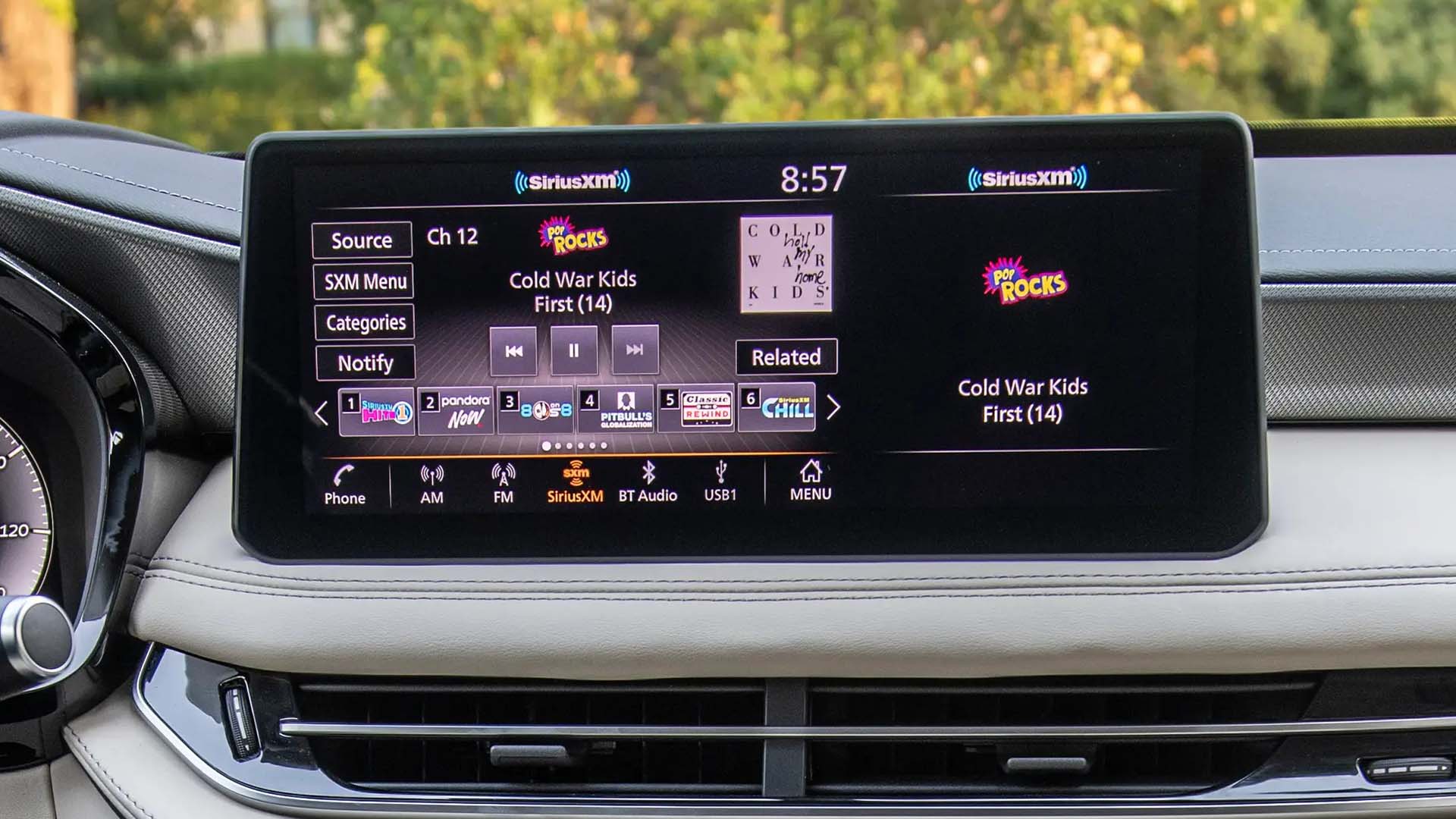

Here’s one more potential tracking device you might not have thought about: Sirius XM, at least in their higher-end offerings with more connected-car tech. Police in Rye Brook, New York, credit the satellite radio provider for leading them to an Infiniti QX60 crossover that was reported as stolen, Patch reports. Yes, Sirius XM, the company that lets Garth Brooks play whatever he wants to all over a channel. That one.
Rye Brook police told Patch that the Sirius XM’s Connected Vehicle Services notified them about the Infiniti QX60 at about 2 a.m. on Sunday. The car had one of Sirius XM’s systems—the Infiniti InTouch infotainment system—and had been stolen from Stamford, New York, on Saturday, and it was then stopped on Holly Lane in Rye Brook. Three suspects, all 21-year-olds from Queens, were inside the car and subsequently arrested. All three suspects were charged with felony possession of stolen property.
Not every car with Sirius XM has this tracking capability, nor is this something that all of its radios can do, as it has nothing to do with the company’s audio side. Only those with Sirius XM Connected Vehicle Services like InTouch or UConnect Access enabled can do this. These are beefed up connected-car services Sirius XM offers that are less like a simple radio service and more like an OnStar suite, to name-check one of its rivals here. Sirius XM Connected Vehicle Services, like OnStar, develops in-car tech for convenience and security that it provides to many automotive manufacturers. UConnect, for example, is Stellantis’ infotainment system, so many newer Dodge, Alfa Romeo, Chrysler, Ram, Fiat and Jeep models are capable of pinpointing your stolen ride’s location to police if you have that service enabled, too.
Yet depending on your relationship to data privacy, the idea that a company can share your car’s location data with police may feel like an extra layer of protection, or it may sound like a bridge too far. That’s an even bigger concern in 2022, where a patchwork of wildly different state laws has resulted in people crossing state lines just to access forms of healthcare that are banned or severely restricted in their home states. Legally speaking, user privacy protections are woefully thin, as nothing currently blocks warrantless vehicle surveillance and, well, the data’s right there on a connected car.
The Drive reached out to Sirius XM to inquire about the extent to which these trackers can be disabled if you’d rather not use them, and the company noted that users have to explicitly opt-in to send their vehicle location data to police, as a Sirius XM representative explained via email:
Stolen Vehicle location service is only provided in response to the vehicle owner’s request for the service accompanied by a valid stolen vehicle police report or at the request of the law enforcement agency receiving the police report, after verification with the subscriber. Vehicle location is not shared with Sirius XM Connected Vehicle unless an enabled service is requested by the subscriber or driver, such as finding their vehicle, navigation assistance to a Point of Interest, or requesting emergency support via an SOS button, the exception being in the case of an accident where airbags deploy or seat belts retract, for which the vehicle automatically calls the response center with its location, allowing us to send emergency responders to the crash site if warranted (e.g., driver is unresponsive or expressly requests help). All circumstances in which location information may be collected and shared are disclosed to customers in the privacy policies and terms and conditions applicable to their brand of vehicle and selected services.
That “selected services” part is also key, as not every Sirius XM Connected Vehicle Services plan includes this particular service. Different plans of UConnect Access, for example, offer different services, and not all of them include Stolen Vehicle Assistance or a Vehicle Finder. Likewise, if all you have is a Sirius XM satellite radio without a full Connected Vehicle suite of services attached, the company clarified that it’s not going to be capable of sharing any location data. Yet as always, if you’re unsure about data privacy, you may want to stick to an unconnected car just in case.
UPDATE [6:33 p.m., Friday, August 26, 2022]: This report has been updated with SiriusXM Connected Vehicles’ response.
Got a tip? Send us a note: tips@thedrive.com